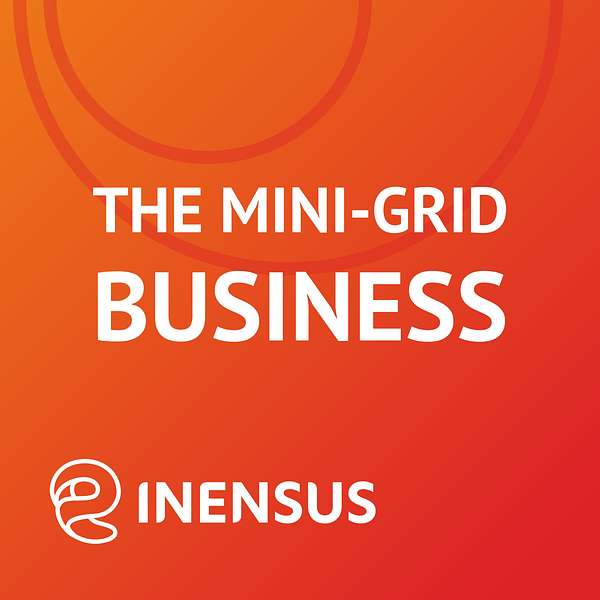
The Mini-Grid Business
Welcome to "The Mini-Grid Business," hosted by Nico Peterschmidt, CEO of the consultancy company INENSUS. With nearly two decades of experience working with over 100 mini-grid companies across Africa and Asia, INENSUS created a podcast, which becomes your gateway to the world of rural electrification through mini-grids.
In each episode, Nico and his guests – seasoned experts who have navigated the complexities of the mini-grid sector – offer candid insights based on real-life experiences. Whether they're individuals who have overcome significant challenges, policy makers shaping the sector’s frameworks and funding structures, or visionaries crafting the future of mini-grids, they all have unique perspectives to share.
From exploring successful pathways to profitability, to dissecting the reasons behind a company's struggles, "The Mini-Grid Business" delves deep into both theory and practice. It questions the accepted status quo of the mini-grid sector, aiming to unearth new perspectives or expose misunderstandings that need addressing.
This is a space for thought-provoking discussions, innovative ideas, and invaluable knowledge exchange.
Whether you are an industry veteran, a newcomer, or simply curious about the transformative potential of mini-grids, this podcast invites you to challenge your thinking, learn from others, and engage with a community that’s shaping a brighter, more sustainable future.
So, tune in, and enjoy "The Mini-Grid Business"!
LinkedIn: https://www.linkedin.com/company/inensus-gmbh/mycompany/
Twitter: INENSUS (@INENSUSgmbh) / X (twitter.com)
Visit www.inensus.com for more info.
The Mini-Grid Business
The cooperative movement
Use Left/Right to seek, Home/End to jump to start or end. Hold shift to jump forward or backward.
Community-owned electric cooperatives transformed rural electrification in the USA, raising access from 10% to 90% in just 15 years starting in the late 1930s. This successful model has since been replicated in regions like South America and countries such as the Philippines and Bangladesh. In Africa, this movement is now beginning to take shape. In this episode, Doreen Chipika Bwalya and Frank Bergh from NRECA International discuss how electric cooperatives - rooted in member ownership and democratic governance - offer inclusive energy solutions while keeping electricity costs low. They also compare these community-driven models with investor-owned alternatives, shedding light on the seven cooperative principles that encourage local engagement and resilience.
By combining the strengths of cooperatives in local management with the innovation and complexity-handling capabilities of for-profit mini-grid companies, synergies may emerge that could lower tariffs and speed up mini-grid deployment. Could this hybrid approach become a viable model for accelerating rural electrification in Africa?
For more insight into NRECA's work, watch this video: https://youtu.be/gCOqxPax5lw?si=FgvN1BXim0a5c6H2
NRECA International would like to thank the USAID Cooperative Development Program for funding their work in Zambia and Malawi.
LinkedIn: https://www.linkedin.com/company/inensus-gmbh/mycompany/
Visit www.inensus.com for more info.
